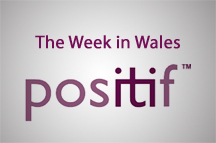 This phrase, taken from an encyclopaedia years ago, is to a Welsh patriot one of the most inflammatory sentences ever committed to print. Comparisons with Scotland are acceptable, with England they are not. But after the General Election result, there seems more truth in the phrase than ever before – and much less credibility to the notion that Welsh and Scottish politics are somehow aligned.
This phrase, taken from an encyclopaedia years ago, is to a Welsh patriot one of the most inflammatory sentences ever committed to print. Comparisons with Scotland are acceptable, with England they are not. But after the General Election result, there seems more truth in the phrase than ever before – and much less credibility to the notion that Welsh and Scottish politics are somehow aligned.
Such an assertion isn’t pure fancy. It’s supported by a series of clear psephological facts. First, look at where the seats changed hands in Wales last week. In all, just four seats out of forty moved. One of these was a Labour gain from the Liberal Democrats in Cardiff Central; but the other three were all taken by the Conservatives, namely Brecon and Radnorshire from the Lib Dems and both Vale of Clwyd and Gower from Labour. The latter result is particularly stunning. Not only was it won by just 27 votes, but the seat was last held by the Conservatives in 1906. And it was won while UKIP was similarly surging in Gower too.
In essence therefore, with the Conservatives not conceding any territory at all and also making multiple gains, taking them to 11 seats out of 40 in total, they picked up ground at the same speed they did in many English regions. Because of that, like in the South West and the Midlands, they are a seriously credible force in Welsh politics. From the 1997 and 2001 General Election wipeouts they now have over a quarter of the Welsh seats, as well as being the official opposition in the National Assembly.
On paper last Thursday was the best Conservative result in Wales since 1983 but that isn’t the full story. In 1983 the Alliance split the vote in many seats to allow the Conservatives through the middle. Last week neither the Liberal Democrats nor Plaid Cymru performed well. The Conservatives were gaining ground in straight fights not involving parties of the centre left. That isn’t what Welsh politics has been about in the past.
 Indeed, to give the analysis some real context, it is worth reflecting on quite how badly Plaid Cymru did, despite having the biggest media boost in the party’s recent history through involvement in leader debates on a UK level and multiple column inches devoted in UK newspapers. Despite this, they did not move forward a single step and did not take a single seat. Even PR wouldn’t have seen them increase from three constituencies. That’s how bad it was.
Indeed, to give the analysis some real context, it is worth reflecting on quite how badly Plaid Cymru did, despite having the biggest media boost in the party’s recent history through involvement in leader debates on a UK level and multiple column inches devoted in UK newspapers. Despite this, they did not move forward a single step and did not take a single seat. Even PR wouldn’t have seen them increase from three constituencies. That’s how bad it was.
And Plaid achieved that result despite occupying policy ground clearly to the left of Labour and despite the triumph of their SNP colleagues in one of the greatest landslides in British history. Indeed, nothing shows more clearly how divergent the politics of Wales and Scotland has become than comparing the current electoral positions of Plaid and the SNP. But dig even deeper and you will see further evidence of a right ward shift in Welsh politics. UKIP lost every deposit in Scotland, and held every deposit in Wales. Indeed, they actually came third, ahead of Plaid Cymru, in the popular vote.
So it wasn’t just the Conservatives making progress, it was UKIP taking a sizeable chunk of the vote too, and not getting any seats. Remind you of anywhere else in the UK? Not Scotland, that’s for sure. The politics of Wales and England is closer in 2015 than anyone would have predicted or believed possible a decade ago.












